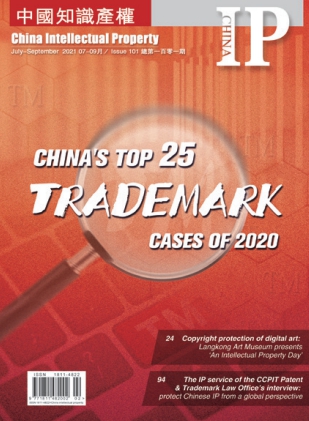
Docket No.: 3273, second instance (缁�), administrative case (琛�) , (2019) the High People's Court of Beijing Municipality (浜�)
Lower Court Docket No.: 9208, first instance (鍒�), administrative case (琛�), (2017) Beijing Intellectual Property Court (浜�73)
STATEMENT OF THE CASE AND FACTS
MASCOTTE HOLDINGS, INC.
Plaintiff-Appellant
v.
CHINA NATIONAL INTELLECTUAL PROPERTY ADMINISTRATION
Defendant-Appellee
XIAMEN YEZHI TRADE CO., LTD.,
Third-party defendant
The disputed trademark YEEZY with the application number 11161428 was applied for by Wenzhou Yinuo Information Technology Co., Ltd. (“Yinuo”) on July 4, 2012, and its registration was approved on September 14, 2015. The registration was under Trademark Class 25 covering products such as clothing, footwear, layettes, swimsuits, underpants, hats, hosiery, underwear, scarves, belts (clothing use). The trademark was transferred to Xiamen Yezhi Trade Co., Ltd. (“Yezhi”).
On December 22, 2015, Mascotte Holdings, Inc. (“Mascotte”) filed an application for declaration of invalidity of the disputed trademark with a Chinese government agency formerly known as the Trademark Review and Adjudication Board of the State Administration for Industry and Commerce of the People’s Republic of China (“Trademark and Adjudication Board”) on the basis that Kanye West had commissioned Mascotte to handle all issues regarding the intellectual property of his nickname “YEEZY”. Kanye West is a famous American singer, producer, songwriter, designer, and 2020 US presidential candidate. “YEEZY” is his nickname. Used as a trademark for products such as shoes, clothing, bags, and accessories, and services, the YEEZY trademark enjoys great fame and popularity. Kanye West has the personality rights to “YEEZY”. The Chinese company’s registration of the disputed trademark constituted a bad-faith trademark filing since the trademark rights were acquired Mascotte by "priority of use" of the trademark, which even became well known.
The Trademark Review and Adjudication Board ruled that it was difficult to determine that the registration of the disputed trademark constitutes the “bad-faith filing of a trademark that has been used by others and has a certain influence by improper means” as stated in Article 32 of the 2014 Trademark Law and decided to maintain the registration of the disputed trademark.
Mascotte was not satisfied with the decision and filed a lawsuit with the Beijing Intellectual Property Court.
Mascott Company refused to accept the judgment of the first instance and appealed to the Beijing Higher People's Court. The court of second instance held that, based on the large amount of publicity and reported evidence in the case, it can be determined that "Nike Air Yeezy" sneakers, as a joint product of Mr. Kanye West and Nike, had a high reputation in China before the filing date of the disputed trademark. . The "YEEZY" logo can play a role in distinguishing the source of goods, and it can also be determined that the "YEEZY" logo has had a certain impact through continuous joint cooperation on shoe products. After Mr. Kanye West finished his cooperation with Nike, he launched the "YEEZY" series of sports shoes in cooperation with other brands, which shows that "YEEZY" can independently play the role of identifying the source of goods without relying on other brand partners. Therefore, the "YEEZY" logo had already constituted a trademark that was previously used on shoe goods and had certain influence before the filing date of the disputed trademark. The registration of the disputed trademark constituted an improper means to preemptively register others who had already used it first and had certain influence. The situation of the trademark. At the same time, the registration of the disputed trademark harmed Mr. Kanye West's right to name. According to this, the court of second instance ruled: the State Intellectual Property Office shall make a new ruling if the judgment of the first instance and the ruling of the accused shall be revoked.
ANALYSIS
This case not only involves the protection of the name right of Mr. Kanye West, a well-known American figure, but also the protection of signs in the new business model of joint-branded products.
Co-branded products are products that are cooperated by different brands, or products that a certain brand cooperates with a celebrity. Co-branded products rely on the advantages and influence of both parties in their respective fields to expand consumer groups and achieve a win-win situation for both parties. Co-branded products usually adopt a limited-release sales model. Although they cannot be compared with ordinary products in terms of pure sales volume, they are often more well-known due to their specific business models. The name of the co-branded product is generally a combination of the signs that refer to the two parties. Therefore, the market popularity and reputation of the product should be attributed to the two parties. When the well-known of the co-branded product is sufficiently high, the logo on behalf of the partners can be used to identify the source of the product. The role of. The situation in which one of the co-branded parties claimed rights on the mark representing his name in the joint-branded goods did not appear in previous cases.
In this case, through the protection of the name mark of the joint product, the malicious registration was effectively combated and the market order of fair competition was maintained. This case was selected as one of the “Top Ten Cases of Judicial Protection of Intellectual Property Rights in Beijing Courts in 2020”.
|
Copyright © 2003-2018 China Intellectual Property Magazine,All rights Reserved . www.chinaipmagazine.com 京ICP备09051062号 |
|
|



